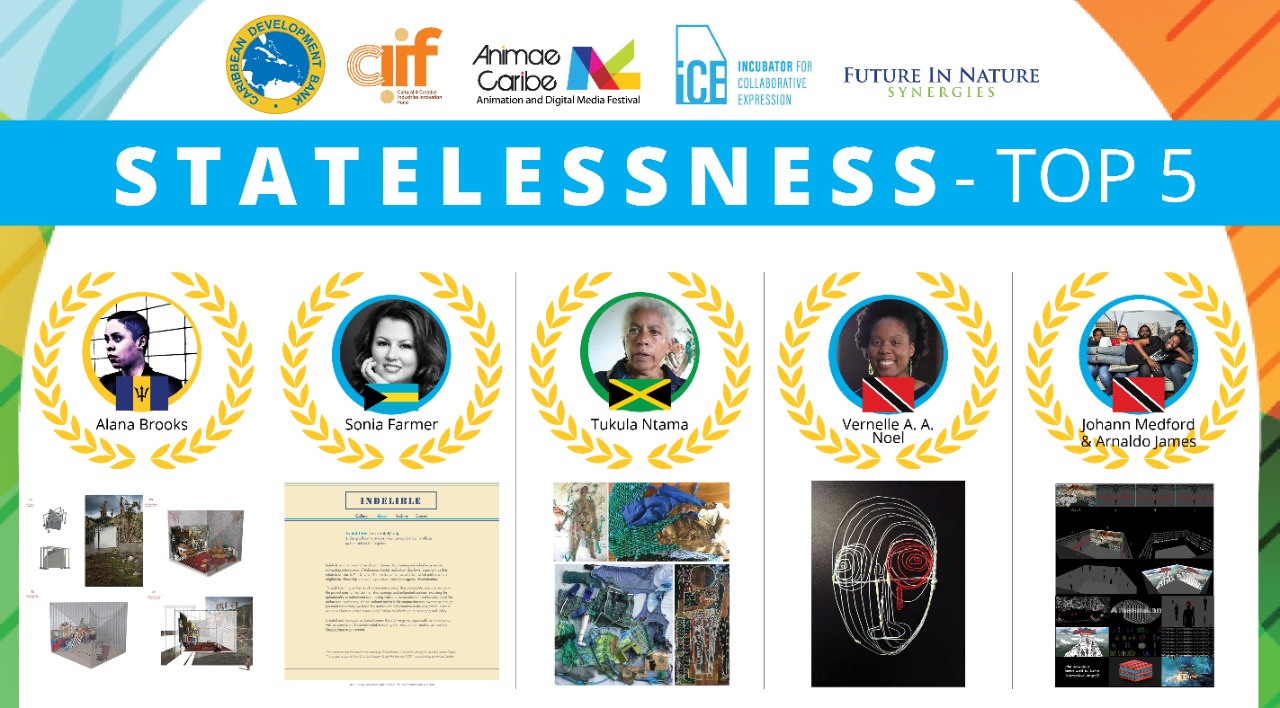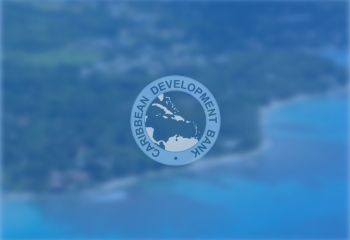CIIF Biennial prize winner spotlights stateless peoples

For thousands of years, art has been an important medium for powerful storytelling. It can be a tool of subversion, reflecting protest, messaging by the artist’s innermost desires, interrogation of difficult topics, or simply a celebration of life and love.
Trinidadian artist Arnaldo James, an academic, teacher and activist, has joined forces with fellow cultural practitioner Johanne Medford, on a project that draws attention to difficult social issues affecting indigenous people, as well as members of the lesbian, gay, bisexual, transgender, queer, intersex (LGBTQI) communities of the region.
James is among five visual artists who have all been awarded prize grants through the I.C.E. Visual Arts Biennial, an accelerator programme funded by the Caribbean Development Bank’s Cultural and Creative Industries Innovation Fund (CIIF). The programme was facilitated by Animae Caribe of Trinidad and Tobago and Hillhouse of The Bahamas between April and July 2021.
The other prize grant awardees’ projects include Jamaica’s “Planting Seeds. Artist in Community” with Tukula Ntama; “Stateless” in Barbados with Alana Brooks; “Indelible” with Sonia Farmer in The Bahamas; and “We are (In)visible” with Vernelle Noel of Trinidad and Tobago.
The theme of exclusion and marginalisation runs through the Accelerator which provided a platform to issues of persons not recognised as citizens of any country, by applying science, technology, engineering, art, mathematics (STEAM) to a creative virtual engagement in the visual arts.
James, who is of Garifuna heritage, said his project spotlights indigenous, or native Caribbean people and members of the LGBTQI community who are impacted by elements of statelessness.
It can be an uncomfortable yet consuming issue to address, but James and his team, seek to utilise an interactive multi-media exhibition including animation, to rally those who enjoy the benefits of state protections, to support those who find themselves “stateless”.
James, who is a strong proponent of combining activism and culture, described his planned three-month project, for which he has been awarded US$5, 000, as a “peaceful action from audiences privileged with state safety, to assist those adversely marginalised and endangered”.
James assessed that “the work, while it can be seen as humanitarian, can also be viewed as political”. He drew attention to the sizable indigenous population in Trinidad and Tobago, as well as the humanitarian crisis that has enveloped Venezuela leading to thousands seeking refuge in his homeland.
As stateless people, they face exploitation, poverty, general marginalisation, and a level of invisibility.
“We are primarily using animation . . . . We are going to engage with stakeholders – reaching out to the human rights organisations that are working specifically with indigenous and LGBTQ communities, trying to engage with folks who are in a stateless position and identify what their needs are and how they can best benefit from the initiative,” the artist noted.
While James and his team initially imagined the project would be executed in a physical, interactive display, they have been forced to return to the drawing board to explore options which consider COVID-19 mitigation measures, and the impact of the disease.
He explained: “The work we have created is imagined as an immersive, visual environment. This was conceptualised as a physical space. We are now figuring out how to make it work as effectively as possible in a digital space.
“At first it was conceptualised as these 360 projections and people would actually enter a room and be surrounded by visuals that are constructed around various themes of indigenous and LGBTQ Caribbean folks navigating statelessness.”
Undaunted, the artist said regardless of the mode of delivery for project, it is expected to be well-researched, transformative, provocative, and importantly, a call to action.


